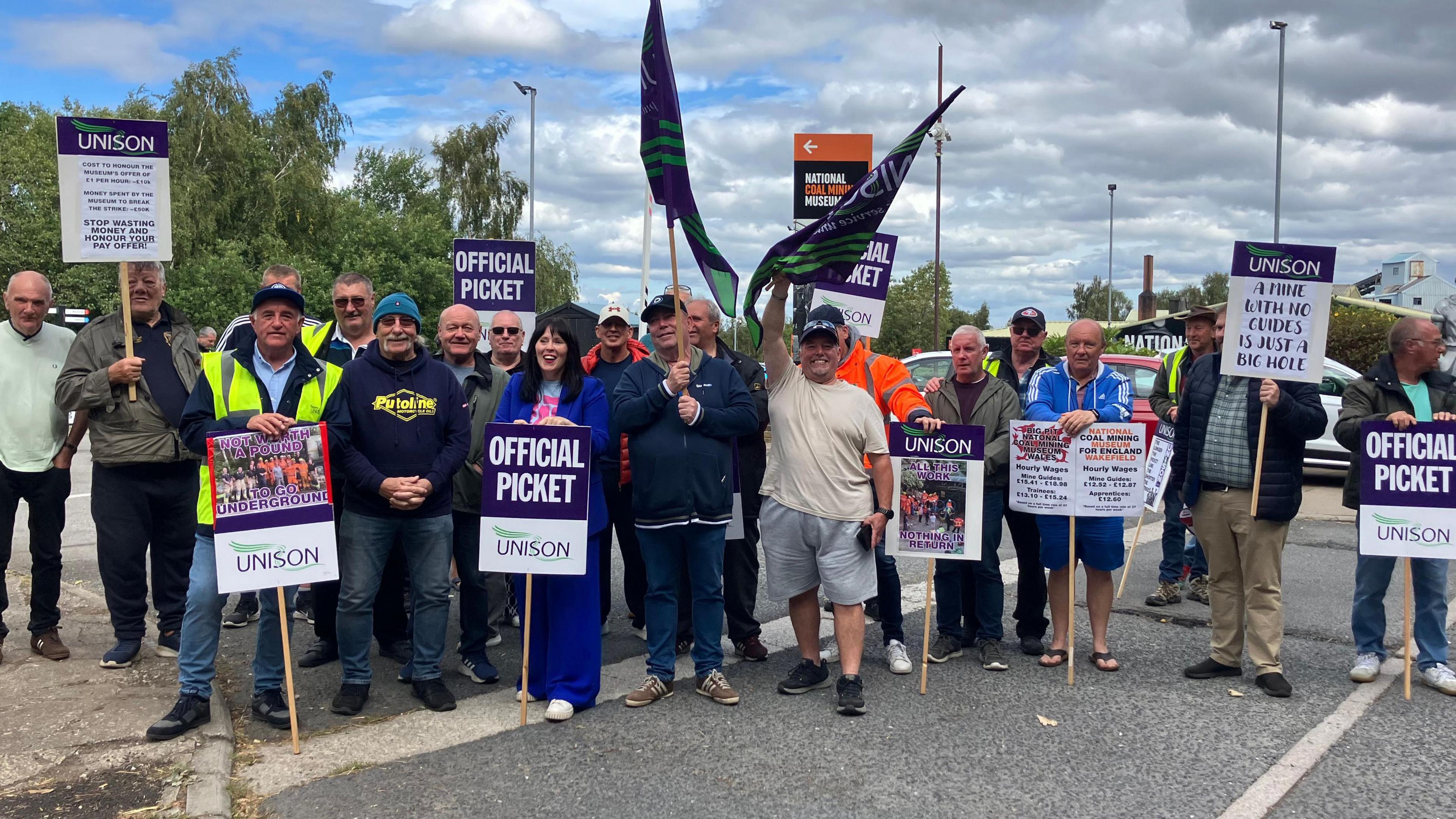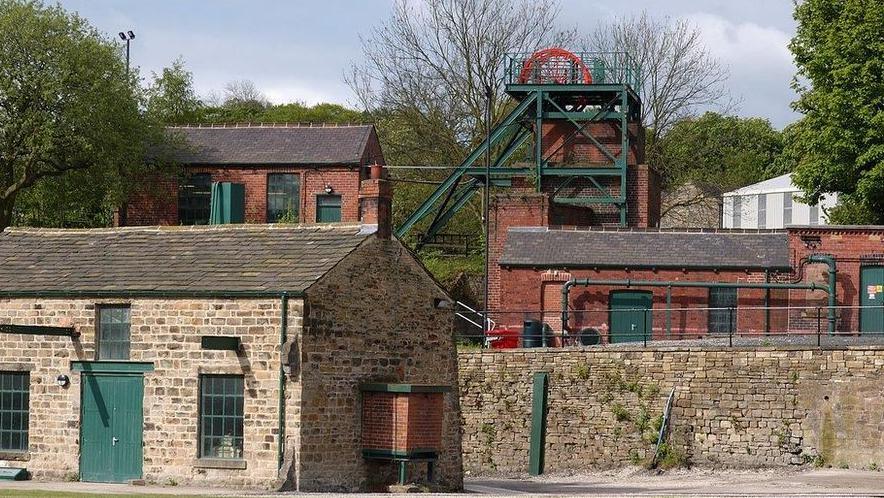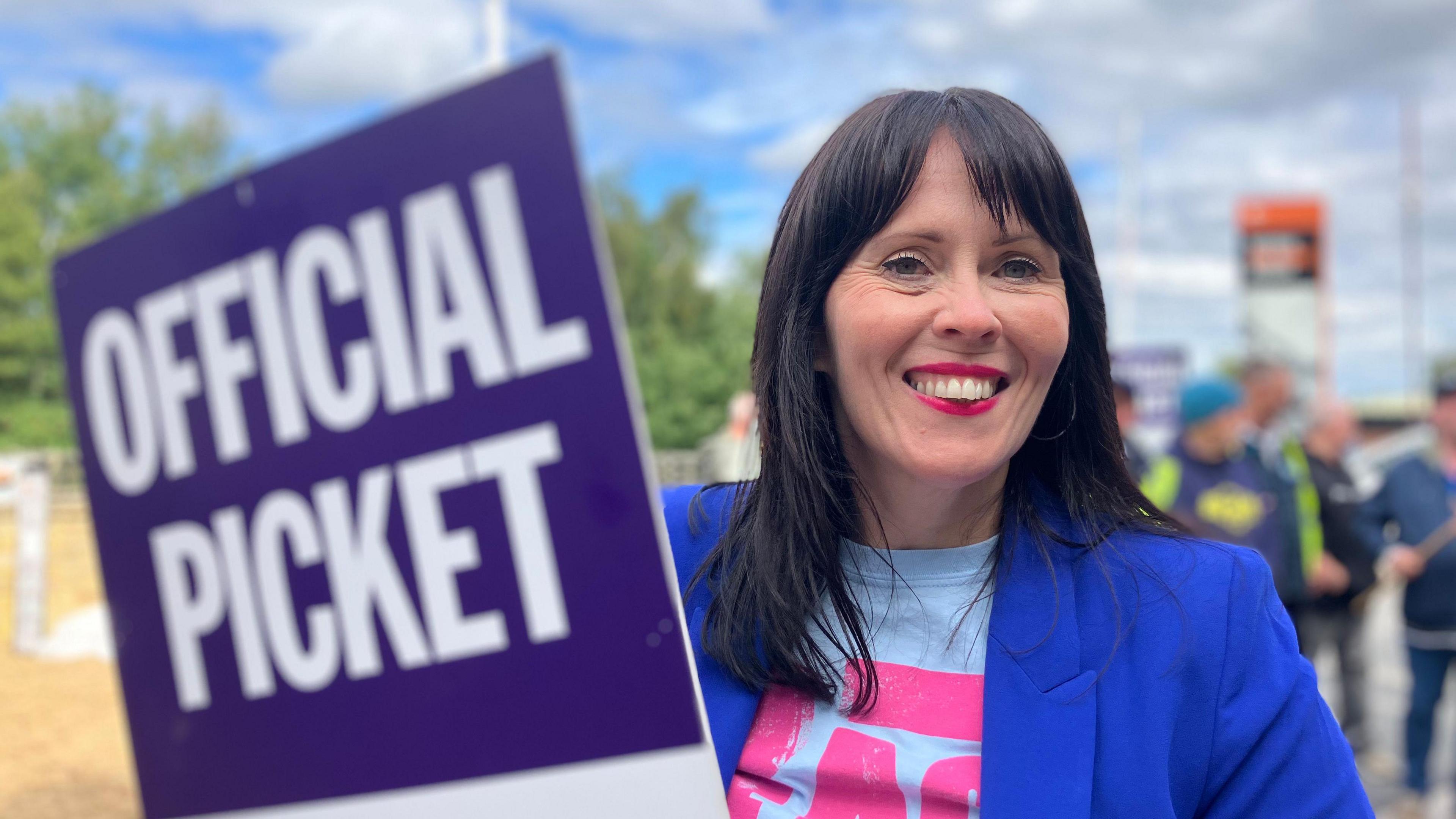Mining museum strike extended in row over pay

The strike at the National Coal Mining Museum was now due to end on 12 October, Unison said
- Published
A strike by more than 40 workers at the National Coal Mining Museum is to be extended until mid-October after the chief executive quit talks, a union has said.
Members of Unison at the museum in Wakefield, many of whom, the union said, earned about £12.60 an hour, began a four-week strike in August calling for higher pay.
Less than a week before the walkout, the museum offered a pay rise of 5%, or 80p more per hour, whichever was higher, but Unison said it was a "worse offer" than was previously discussed.
Philip Marshall, chair of trustees, said the museum was "committed to fair and ethical pay", but did not consider Unison's claim for 5% or £1 more per hour to be "reasonable or affordable".
The trustees' offer would lead to many employees receiving a rise of 14% over two years, and the charity would have to "find efficiencies and make savings" to afford it, Mr Marshall said.
"The trustees were keen to support our chief executive and her team in finding a speedy resolution to the dispute," he added.
But Unison said museum chief executive Lynn Dunning's "refusal" to return to pay talks had left it "no option but to extend the action further" and moved the strike's end date from 14 September to 12 October.

Museum workers voted for strike action after claims a promised pay rise was pulled
A Unison spokesperson said: "The union wants the chief executive to either step up and engage in meaningful talks to bring the dispute to an end, or step aside and let someone else get it sorted.
The museum's spending on private security guards and alternative attractions during the strike could have funded the pay claim "several times over", according to the union.
Responding, Mr Marshall said the museum had been incurring additional costs, including on security, but "not at the levels being suggested" by the union, which had estimated "almost £50,000" of extra spending.
Some of the guides on strike at the National Coal Mining Museum had been part of the year-long miners' strike in the 1980s, Unison said.

Rianne Hooley, from Unison, said striking staff were "desperate" to return to work
Rianne Hooley, Unison's regional organiser, said: "This isn't just a job. It's an opportunity [for staff] to keep the area's coal mining heritage alive through their storytelling.
"They're desperate to be back doing what they love, but they want to be paid fairly and treated with respect.
"If the chief executive continues to refuse to negotiate, staff have no choice but to continue their strike."
Mr Marshall said the museum remained "fully open to constructive dialogue" with the union, in an effort to find a solution which supported "staff and our long-term sustainability".
Get in touch
Tell us which stories we should cover in Yorkshire
Listen to highlights from West Yorkshire on BBC Sounds, catch up with the latest episode of Look North